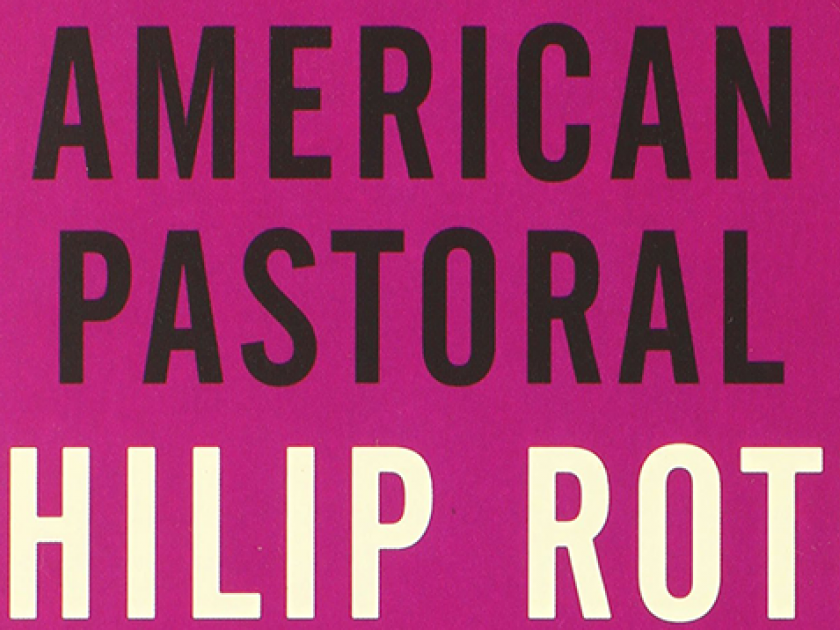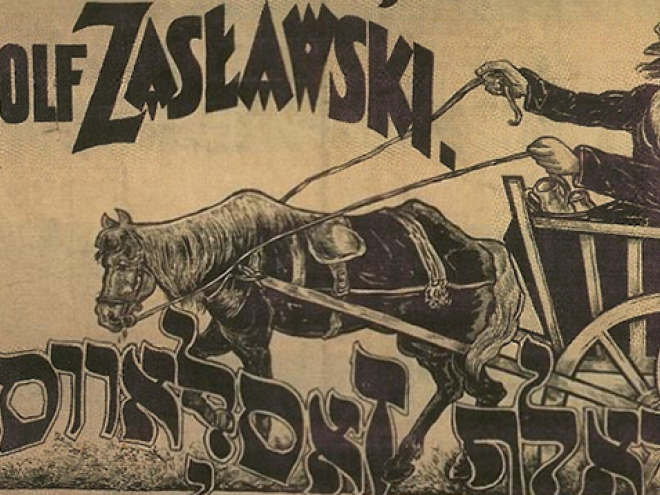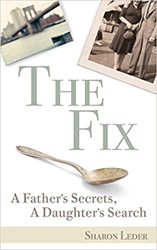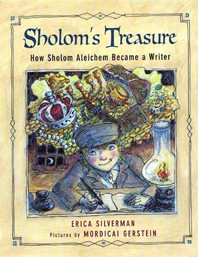
Sharon Leder is the author of the recently published novel The Fix: A Father’s Secrets, A Daughter’s Search. She will be blogging here all week for the Jewish Book Council’s Visiting Scribe series.
I had the privilege in 2008 of teaching a seminar at the Wellfleet Library on Cape Cod on the father-daughter relationship in Jewish literature. The American Library Association sponsored the program, “A Mind of Her Own: Fathers and Daughters in a Changing World.” My teaching American Pastoral by Philip Roth, Tevye the Dairyman by Sholem Aleichem, Bread Givers by Anzia Yezierska, O My America! by Johanna Kaplan, and Bee Season by Myla Goldberg helped me find my own character, Sara Katz, eight years later. And in May 2017, my revised novel, The Fix: A Father’s Secrets, A Daughter’s Search was published by KiCam Projects.
The original Sara Katz first appeared publicly in 2006 when I began circulating my manuscript. That Sara, who was a radical teacher of Women’s Studies, hadn’t resolved childhood traumas over her deceased father’s heroin addiction. As Sara attempted to mainstream the new interdisciplinary field, she entered into constant conflict with male administrators who, in her dreams, resembled her father, her memories of him laced with residual anger and resentment. The manuscript was rejected by agents and publishers who had problems with the character of Sara. Feminists weren’t especially popular heroines then, they told me, and they themselves didn’t find Sara particularly sympathetic. Change your main character was the advice.
How should I change Sara? Should I develop her character with a conscious eye toward dispelling any possible negative stereotypes of feminists as man-haters? Teaching fathers and daughters in Jewish literature was my opportunity to learn from the masters how to develop my characters! I learned different lessons from Roth, Aleichem, and the three women novelists who wrote coming-of-age narratives — Yezierska, Kaplan, and Goldberg — and the influence of each of these authors was indispensible to my completed novel.
As part of the Visiting Scribes program this week, I’ll share how each of these impactful writers empowered and educated me, beginning today with Roth.
Philip Roth’s American Pastoral: Merry Levov, Terrorist
From Roth I learned that the reader can identify with a character, even one who takes radical stands, if the reader watches the character grow over time and feels connected to the character’s evolution. My Sara Katz did not by any means go to the same extremes as Roth’s Merry Levov, but both young women came of age during the turmoil of the 1960s, and both turned against the mainstream. The transformation of Sara that I began under the influence of Merry was extended and elaborated upon because I studied elements of fiction skillfully employed by the four other seminar authors. But my first mission was to create a sympathetic feminist with whom the reader could identify. Roth’s Merry, a terrorist, an inadvertent murderer, was a striking example of a character we could abhor but whose roots we understood.
Roth’s Pulitzer Prize-winning novel American Pastoral (1997) is the tragic account of what happens to a Jewish high school football hero after he marries an Irish Catholic beauty queen. They move to an idyllic spot in rural New Jersey and raise their only daughter, a stutterer, who eventually in the ’60s becomes a terrorist, a tool of Black Power and the Weathermen, responsible for several deaths. Though Sara and Merry were raised during the same political era, Sara’s political activism — becoming involved with the women’s liberation movement and the burgeoning field of women’s studies — took more constructive forms than Merry’s. I realized though, in reading Roth, that I knew so much more of Merry’s personal history than the reader knew of Sara’s.
In my original manuscript, the reader learned what led Sara to feminism only in dribs and drabs through flashbacks of the young Sara. I gleaned from Roth that to understand the genesis of an activist, the reader needs to know her full history, her family background, and her social/economic context. Roth is genius at creating the upward-mobility pressure cooker in which Merry is raised: her father, Seymour’s, success-driven glove factory; her mother, Dawn’s, personal farm where she raises cows; their professional-class network of friends. What does the reader need to know, I wondered, about Sara’s motivation to create new courses on women and teach them in the university? And if the reader is introduced to the triggers of Sara’s activism, will the reader then sympathize more fully with her determination to change the system?
Here is a scene from the final version of The Fix that was published, created as the origin of eight-year-old Sara’s passion to save women from domestic abuse. Sara’s mother, Helen, is confronting her husband, Josef, for the first time about his addiction. He is demanding that she turn rent money over to him for drugs, and Sara is witness to their argument:
“I’m not going to feed your habit!” Helen shouted. And when she didn’t go to the broom closet to get the money, when Josef saw her back away from him and quickly place her hand in her apron pocket, he lunged at her. “You’re insane!” she screamed, taking hold of the roll of bills and drawing both arms behind her back. Sara’s father darted toward her like a ferocious King Kong. Sara had seen the monster movie several times on TV and had nightmares about a large ape terrorizing people. “No! No! Daddy, stop!” Sara saw her father shove her mother against the wall, twist her arm, and rip her apron … Fear mingled with hate welled up inside her. Her mother was in danger, and she must save her. But how? Sara clenched her teeth. She pictured the sharp, gleaming knife that her father kept in the kitchen drawer, the one he used to carve roast beef and turkey (Chapter One, 1955).
Sara imagined “the grainy feel of the knife’s wooden handle in her palm” and thought, Do I really want to kill my father? The father she knew and loved might turn around and say in his jolly voice, “Sara, my Sha-Sha,” and she’d feel ashamed. Flooded by feelings of love, fear, and hate, she fell asleep, exhausted.
I was hoping to show, in contrast to Roth, that an activist does not have to become a terrorist. I wanted to give feminism a better rep. In the published novel, a maturing Sara extends her politics to include Civil Rights, my goal being to show that several popular movements of the ’60s offered Sara productive consolations from her family turbulence.
In my next piece, I’ll take a look at Aleichem’s Tevye the Dairyman and how it affected my use of dialogue between Sara and her father in The Fix.
Dr. Sharon Leder Associate Professor Emerita is a natural organizer who founded Jewish Studies at S.U.N.Y.-Nassau Community College. Past Vice President of Am HaYam Cape Cod Havurah she currently serves its Interfaith Justice Committee. With Milton Teichman she edited “Truth and Lamentation: Stories and Poems on the Holocaust” (University of Illinois) nominated for the National Jewish Book Award.



